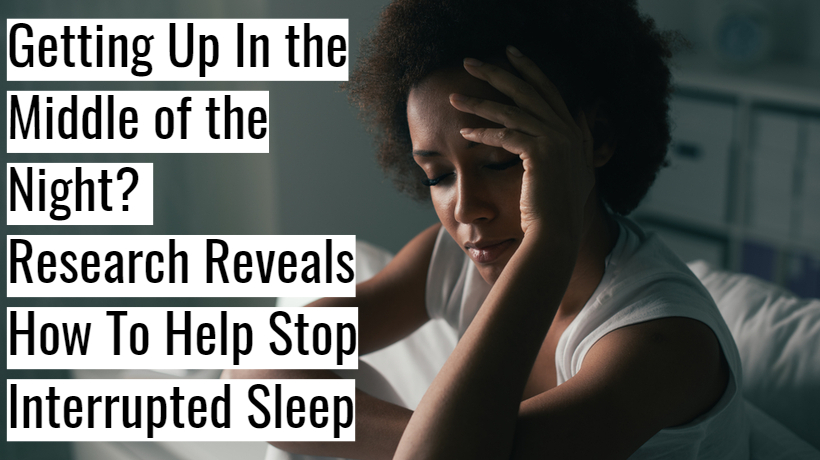The pandemic has caused major interruptions in many people’s sleep schedules. Practicing good sleep hygiene is key to eliminating distractions and disturbances that prevent us from getting a good night’s rest.
But what happens when you still find yourself waking up in the middle of the night? Eliminating distractions from your sleep environment and engaging in different relaxation techniques can have a huge impact on your snooze.
So, for when you’re wide awake and need to return back to dreamland, here are some helpful tips experts recommend to trying:
Get rid of bright lights and loud sounds
If you can’t seem to stop tossing and turning, try looking for any shutting off any distracting lights or sounds that may have disturbed you in the first place. Unplugging any LED-lit electronics, turning off your phone, and shutting the blinds are all good ways to help ensure an uninterrupted rest. Wearing an eye mask and noise-cancelling earplugs can also help shut out any future disturbances.
Additionally, many experts recommend stepping away from the screen well before bedtime; the blue light from our computer and phone screens can actually keep the mind stimulated long after we hit the hay and disrupt our circadian rhythms, making it hard to stay asleep after we’ve shut our eyes. Turning off electronics at least an hour before bed or turning your devices onto “night mode” are both useful strategies to help reduce some of this blue light-absorption.
Move Around
Johns Hopkins sleep expert Luis F. Buenaver, Ph.D., C.B.S.M. recommends moving to a different environment. If you’re unable to fall back asleep after 20 minutes, moving to a different room and doing a relaxing activity can help wind the body and down and prepare it better for sleep.
“Sit in a comfortable chair in another room,” Buenaver suggests. “Read a book, with just enough lights on so that you can see the print comfortably. If your mind is racing (perhaps you’re going over a work presentation you’ll give in the morning or trying to solve a problem in your life), distract yourself by listening to quiet music or a recorded book for a few minutes. Don’t do anything stressful like working or paying bills.”
Avoid staring at the clock
According to research from 2019 on the links between sleep and stress, experts found that the link between anxiety and sleep may work both ways. People who deal with anxiety often worry about falling asleep and people who have trouble falling asleep often feel anxious.
Counting the minutes of missed sleep since waking up in the middle of the night can only increase an individual’s stress and anxiety. Additionally, the exposure to blue and green light from your clock, phone, tablet or computer can make you feel more alert. Buenaver recommends turning your alarm clock to face the wall or turning your phone upside down as ways to resist the urge to keep checking the time.
Practice relaxation exercises
Whether it’s performing breathing exercises, engaging in meditation, or relaxing your muscles with a full-body ‘body scan,’ finding a technique to relax your physical body is essential to alleviating any tension that could be preventing you from resuming your slumber. Following a guided meditation online is a great way to clear your mind and body for bed.
Here’s one short and simple body scan, as provided by Healthline:
- Close your eyes and breathe slowly.
- Focus on your face and think about relaxing each of the muscles.
- Move to your neck and shoulders and think about relaxing them too.
- Continue relaxing muscles in different parts of your body until you make it to your feet.
Stick to a routine
“Don’t sleep in, don’t nap, and don’t go to bed early the next night,” Buenaver says. “Get up at your usual time and go to bed at your usual bedtime. You may feel a bit more tired than usual during the day, but by increasing your body’s appetite for sleep you’re ensuring a better night—and you’ll put yourself on track for sound sleep after that.”
Sources:
https://www.healthline.com/health/sleeping-with-earplugs
https://www.ncbi.nlm.nih.gov/pubmed/31433569
https://www.sleepfoundation.org/circadian-rhythm-sleep-disorders
http://www.hopkinsmedicine.org/profiles/results/directory/profile/0019944/luis-buenaver
https://www.ncbi.nlm.nih.gov/pmc/articles/PMC7045299/
https://www.healthline.com/health/meditation-for-sleep#body-scan
https://www.healthline.com/health/how-to-go-back-to-sleep#tips



